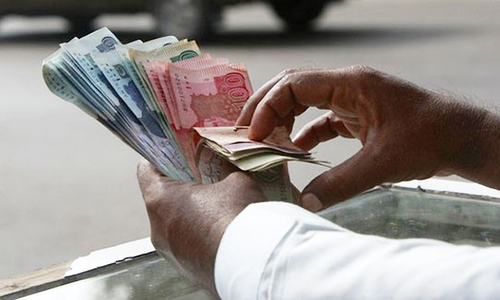ISLAMABAD: Two days after surrendering to public outcry by withdrawing a controversial ordinance that offered Rs210 billion amnesty to big businesses without a pre-audit, the federal government has requested the Supreme Court for out-of-turn hearing of pending cases pertaining to the Gas Infrastructure Development Cess (GIDC) levy.
A formal application was submitted by Attorney General Anwar Mansoor Khan to the apex court on Friday with a pleading to take up GIDC-related cases out of turn. “This Honourable Court may be pleased to take up the cases, out of turn and fix the same at an early date, as may be convenient to the Honourable Court,” says the application.
On Wednesday, Prime Minister Imran Khan while withdrawing the GIDC (Amendment) Ordinance 2019 had directed the attorney general to move the SC for an early decision on the matter in accordance with relevant laws.
The GIDC controversy gained attention when the government promulgated a controversial ordinance last week with an offer to grant Rs210bn financial amnesty to big businesses including fertiliser, general industry, power generation companies, K-Electric and CNG sector.
According to a PM Office statement, the total amount stuck in the GIDC litigation from 2012 to 2018 has risen to Rs417bn.
AG files application for out-of-turn hearing of the matter involving billions of rupees
On Friday, the AG office furnished the application before the apex court stating that the cases relating to the GIDC Act 2015 involved huge sums of government revenue. It stated the matter had been pending since 2017 and petitions had been filed against the Peshawar High Court (PHC) judgement upholding the vires of the law. As a huge quantum of government revenue was stuck on account of the cases, the court was requested to take up the cases out of turn, the application contended.
Through its May 31, 2017, the PHC had rejected a set of petitions challenging the validity of the GIDC Act 2015 on the grounds that the transgression of legislative authority by the federation does not qualify as a breach of fundamental rights of citizens and therefore the petitioners before the high court were not aggrieved persons within the meaning of Article 199 of the Constitution and thus have no locus standi to challenge the validity of the act.
Parliament’s exclusive authority
The PHC in its judgement had also held that when Article 142 (a) was read with Article 154 of the Constitution, it became evident that the parliament had the exclusive authority to legislate on Entries in Part II of the Federal Legislative List of the Constitution.
Earlier, the GIDC Act was approved by the National Assembly in December 2011 imposing cess on gas consumers, other than the domestic sector, to develop infrastructure for a number of projects including Iran-Pakistan Pipeline Project, Turkmenistan Afghanistan Pakistan India (TAPI) Pipeline Project and Liquefied Natural Gas (LNG) project and for price equalization of imported alternative fuels including LPG (Liquefied Petroleum Gas).
But in April 15, 2015, the apex court rejected the federal government’s petition seeking review of its Aug 22, 2014 verdict and clarify that the collection of then over Rs100 billion under GIDC Act was not liable to be refunded to the industrial consumers of gas from whom it was recovered. The then GIDC law had legalised the cess recovery from the non-domestic consumers, mainly industries.
Later, on the expiry of the GIDC ordinance, the National Assembly and Senate passed the GIDC Act 2015 and repealed the GIDC Act 2011.
Moved by senior counsel Makhdoom Ali Khan on behalf of 499 different CNG stations of Khyber Pakhtunkhwa, one of the petitions had sought a restraining order from imposing or collecting GIDC on the gas supplied to the CNG stations.
The petition had also contended before the apex court to order the authorities to restrain from taking coercive action against CNG stations including but not limited to disconnection of the supply of gas during the pendency of the petition and to rectify and amend the bills already issued accordingly.
The petitioners had contended that the federal government transgressed the legislative boundaries of the parliament by enacting GIDC Act 2015 since any statute that infringed the fundamental right was considered void and could be resurrected or revived only after the fundamental right were put in abeyance or amended.
In the present case, the GIDC act was never placed before, discussed or approved by the Council of Common Interest (CCI) and its enactment, therefore, contravenes Articles 153 and 154 of the Constitution as well as the federal scheme.
The petition argued that any charge, which was illegal when imposed, could not be validated by subsequent legislation nor could a tax be validated subsequently under the guise of a fee.
Published in Dawn, September 7th, 2019













































